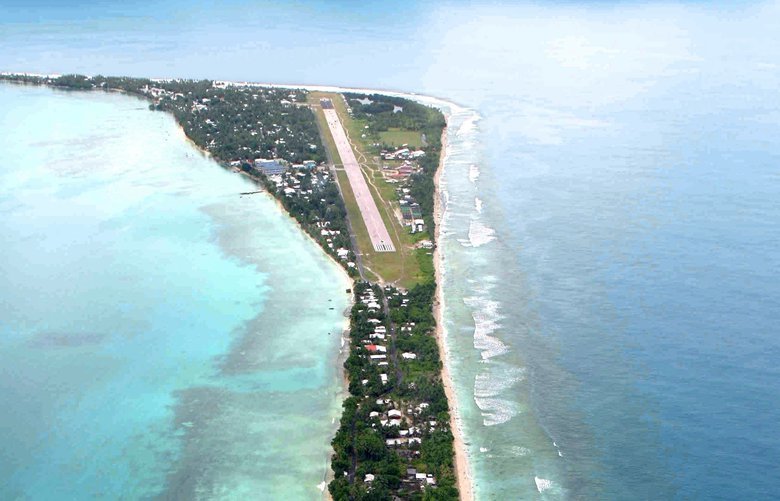What Is The Least Visited Country In The World?
October 7, 2020
Go ahead and ask yourself how many countries you can name. Sure, you can think of the general set of countries that mostly everyone knows about. France, China, Mexico, Germany, and other countries that are often traveled probably come to your mind. But have you ever heard of a country named Tuvalu? Probably not.
Tuvalu, also formerly known as the Ellice Islands, is made of nine small islands spread out over some 420 miles in the Pacific Ocean. The population of Tuvalu in 2018 was 11,508 people according to the World Bank, making it the third least populated island country in the world, followed by Nauru and Vatican City. Most natives live in outer islands, but one third of the island’s population lives on the island of Funafuti, which is the centre of government and commerce. You may ask, because there is a center of commerce, how does this micro-nation earn money? And how on earth did they round up enough money for the hefty price tag to join the United Nations?
One of the most isolated countries in the world, the country of Tuvalu gets only about 2,000 visitors a year, and most people have never even heard of it. To put this in perspective, the United States gets 38,450 times more visitors per year than this tiny island nation. The only way you can get to this island is by plane, and you first have to fly to New Zealand, then get on the plane that flies to Tuvalu once every three days. Clearly, Tuvalu does not make money through tourism. When the internet was first invented, every country was given a domain extension. For example, the United States got .us, Poland got .pl, and New Zealand got .nz. Tuvalu happened to get lucky, with the domain extension of .tv. Many corporations around the world wanted to borrow the extension from Tuvalu for entertainment purposes. Tuvalu decided to capitalize on this opportunity, and today they earn around $2.2 million from the domain extension.
Tuvaluans may be familiar to the western lifestyle, but the Tuvaluan culture has not greatly changed in the past years. People still tend to their gardens, catch fish from handmade canoes, enjoy traditional music and dancing. Volleyball, cricket, and soccer are also very popular games to play. In fact, since the airplane strip in Tuvalu is only used once every three days, people from all over the islands gather on the strip to have fun and play games. Life in Tuvalu rests on a traditional base that greatly emphasizes how important the community is.



Linda P Flannelly • Oct 8, 2020 at 12:24 pm
Fascinating!
My first stop after we get a vaccine!